Current ARCS Awards

Dr. Yeil Kwon
Assistant Professor of Mathematics and Statistics
Fairmount College of Liberal Arts and Sciences
Dr. Kwon is an Assistant Professor in the Department of Mathematics, Statistics & Physics at Wichita State University. His research focuses on empirical Bayes estimation methods for high-dimensional data, with broader interests in parameter estimation problems and data science education.He earned a Ph.D. in Statistics from the Fox School of Business at Temple University in Philadelphia, an M.S. in Operations Research with an emphasis on Financial Engineering from Columbia University in New York, and an M.S. in Statistics from Korea University. Dr. Kwon brings extensive industry experience, having worked as a quantitative analyst at a hedge fund, where he developed options trading strategies using stochastic models. As a principal portfolio manager at an insurance company, he oversaw $12 billion in assets, leveraging analytics to assess credit risk and customer behavior. Additionally, he served as a credit risk analyst at leading credit bureaus, designing predictive models for credit risk, bankruptcy, and fraud detection. His expertise has contributed to major projects with Fair Isaac Corporation (FICO) and Experian, where he played a key role in developing advanced credit risk systems for financial institutions.
Project Abstract
In modern data analysis, estimating the probability of infrequent events is a critical and challenging problem. Infrequent events refer to discrete occurrences that are rarely observed, encompassing extreme cases such as catastrophic terrorist attacks, earthquakes of magnitude 7.0 or higher on the Richter scale, or single-day stock market changes exceeding 10. While many existing methods effectively handle cases where p is near 1/2, estimating p becomes significantly more difficult in extreme cases where p approaches zero due to inherent information scarcity. This research focuses on addressing these challenges by employing two strategies: (1) Empirical Bayesian approach and (2) Restricting the parameter space for p from 0 < p < 1 to 0 < p < u, where u < 1/2. The empirical Bayesian approach allows for the estimation of probabilities by leveraging information from the target population and other seemingly independent populations. Owing to its superior performance, this method has been widely used for estimating multiple parameters across diverse applications for decades. This study will propose an empirical Bayes estimatorbased on a four-parameter beta distribution for a prior distribution to reflect the parameter restriction. Simulation studies will provide empirical evidence to demonstrate the new estimator's superior performance compared with existing estimators, such as the James-Stein estimator and the beta-binomial-based empirical Bayes estimator. Finally, to showcase its real-world applicability, the proposed method will be applied to Major League Baseball home run data. This application will highlight the practical benefits of handling infrequent event probabilities in a new paradigm.
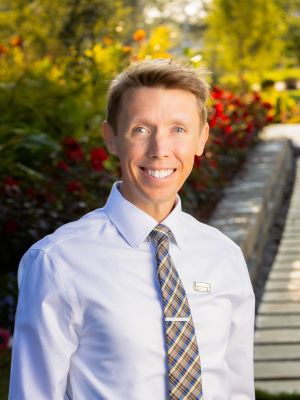
Dr. Bryan Lehecka
Associate Professor of Physical Therapy
College of Health Professions
B.J. Lehecka, DPT, PhD, is a professor in the Department of Physical Therapy at Wichita State University. He has been a faculty member at WSU since 2012. Dr. Lehecka's educational background includes a PhD in Orthopedic and Sports Science from Rocky Mountain University of Health Professions, a Doctor of Physical Therapy (DPT) from Wichita State University, and a Bachelor of Science (BS) in Kinesiology from Kansas State University. In addition to his academic role, Dr. Lehecka is a licensed physical therapist in Kansas, with professional experience working at Via Christi Health. Dr. Lehecka's contributions to the field of physical therapy are reflected in his expanding list of peer-reviewed publications, textbook contributions, and numerous professional presentations. Dr. Lehecka is actively involved in research, focusing on gluteal function and sport performance.
Project Abstract
This study establishes baseline measurements of bone density, lean muscle mass, and movement mechanics in NCAA Division I women's volleyball players at Wichita State University. Dual-energy X-ray absorptiometry (DEXA) scans will quantify bone mineral density and lean muscle mass. The DARI motion analysis system will provide objective measures of movement patterns. This descriptive research addresses a critical gap in understanding the physical characteristics of female volleyball athletes, particularly concerning bone health and movement. The collection of this baseline data is essential for future investigations examining the correlation between these parameters and injury incidence during the subsequent competitive season. By quantifying bone density, muscle mass, and movement profiles, this study aims to contribute to the development of targeted injury prevention strategies. Ultimately, this research will provide foundational data for improving athlete safety and performance.
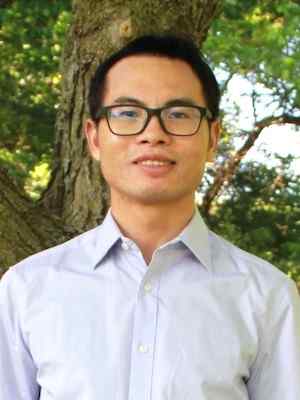
Project Abstract
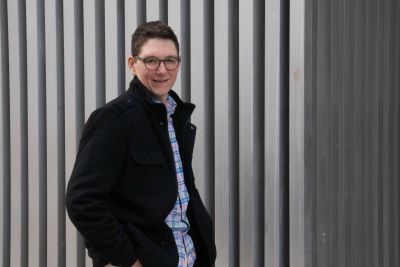
Dr. David MacDonald
Assistant Professor of Music Theory and Composition
College of Fine Arts
David's music has been performed at venues around the world, including Carnegie's Weill Recital Hall. He has been honored by the BMI Foundation, ASCAP Deems Taylor Awards, the Koch Cultural Trust, the Sinquefield Family Foundation, and Michigan State University Honors Competition. He has been commissioned by the Allen Philharmonic Orchestra, Kansas Music Teachers Association, Hastings College Symphonic Band, h2 Quartet, and others. David's writing on music notation, teaching, and music technology have appeared in Scoring Notes, where he is a senior contributor and cohosts the Scoring Notes podcast. He serves on the board of the KNOB Festival of New Music in Wichita, and has previously served on the board of directors of Nullstate, a non-profit organization promoting research and education in computer music. Recent projects include an open folio of works for solo vibraphone, commissioned by KMTA, and a young-audiences work for narrator and orchestra, commissioned by the Allen Philharmonic. Recordings of David's work can be heard on Blue Griffin and Navona Records. David believes passionately that new music — even pretty weird music — is for everyone, not just the formally trained few, and he loves sharing new music experiences with a wider audience. He teaches composition, theory, and technology at Wichita State University, where his also the founding director of the contemporary music ensemble Happening Now. He is from St. Louis, Missouri and received a B.M. in composition and trumpet performance from the University of Missouri - Columbia and a M.M. and D.M.A. in composition from Michigan State University.
Project Abstract
Concerto for Horn and Wind ensemble will be a 15- to 20-minute long, original composition for a French horn soloist and symphonic wind ensemble of around 40-50 players. The work will be my first concerto since my 2011 Concerto for Steelpan and Wind Ensemble. The horn concerto will be a virtuosic piece premiered by Dr. Jeb Wallace, solo horn, and the Wichita State University Wind Ensemble, directed by Dr. Timothy Shade.

Dr. Jacob McGlaun
Assistant Professor of Musical Theatre
College of Fine Arts
With over a decade of experience in musical theater education and directing, Jacob is dedicated to nurturing the next generation of performers through an innovative, movement-based approach. Jacob earned a BFA in Musical Theater from the University of Michigan and an MFA in Movement from London's Royal Central School of Speech and Drama, with additional training in Meisner Technique at NYC's Neighborhood Playhouse.
A seasoned musical theater performer, Jacob's credits span off-Broadway stages, iconic NYC Cabaret venues and regional theaters across the country. His international production work has graced stages in London and Italy, bringing a diverse array of firsthand experience to his practice.
Project Abstract
This project builds on my previous research at the University of Cincinnati and represents a significant step in the development of holistic acting practices. By integrating Zen-based principles into actor movement training, my overall goal is to develop and refine a curriculum which empowers actors to reclaim their bodies as a means for more authentic creative expression. Zen and actor movement training share a common vehicle for development: the human body. Through cultivating embodied awareness, my specific objectives within the curriculum are to help actors gain a stronger connection to space, an enhanced physical presence, and a more deeply felt connection with other actors in the studio. My methodology – known as Practice as Research – synthesizes actor feedback on the curriculum with my own observations, theoretical research and embodied knowledge in the field. This project also serves as an essential phase in my ongoing research, which has been provisionally accepted for publication in Dance, Movement and Spiritualities. These workshops will not only refine my curriculum but also provide the required photographic documentation for the article’s publication.
Current MURPA Awards

Currently, Dr. Davood Askari is an Associate Professor of Mechanical Engineering at Wichita State University (WSU) and the founding director of Multifunctional Nanocomposite Lab (MNL). He has served as a graduate coordinator for Master of Science in Materials Engineering at WSU and he has worked in industry and academia as a mechanical design engineer, research assistant, post-doctoral research associate, and university professor. Davood has been actively involved in research, teaching, scholarly, and professional service activities and his areas of research interest include: (1) design, modeling, analysis, fabrication, testing, of solids, composites, nanocomposites, thin films, and hydrophobic/super-hydrophobic surfaces, (2) synthesis, functionalization, characterization, and applications of carbon nanostructures, metallic Nanoneedles, 3D nano-structured materials, devices, and systems for various high-performance engineering applications. His research and educational efforts have been supported by federal and state agencies and industry collaborators such as NSF and Spirit AeroSystems. He has served as referee, session chair, symposium organizer, and technical committee member for several technical conferences and scientific journals and served as grant reviewer for funding agencies such as NSF.
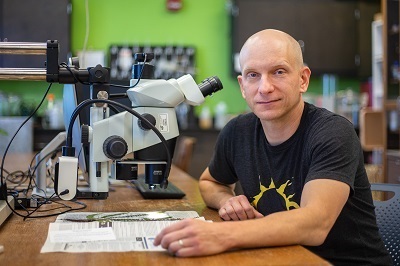
Dr. JaeHwan Byun
Associate Professor Instructional Design & Technology
College of Applied Studies
Dr. JaeHwan Byun specializes in Instructional Design & Technology as an Associate Professor chairing the MEd in Learning and Instructional Design program at Wichita State University. He has secured multiple grants, including a NASA Kansas Space Grant Consortium Teacher Workshop Program Grant for enhancing STEM education. His research areas include learner engagement, digital game-based learning for K-12 mathematics education, and accessibility in online courses. Recently, he has focused on artificial intelligence in educational settings and online learning in developing countries. Dr. Byun's innovative work earned him the Excellence in Online Teaching award in 2023, reflecting his commitment to enhancing student engagement through technology.
Project Abstract
This project aims to explore the use of Generative AI (GenAI) as an innovative tool for counselor education and training. Specifically, we will explore how GenAI can enhance role-playing exercises by enabling the AI to simulate diverse client personas based on parameters we define. The purpose of this study is to evaluate whether GenAI-based training is an effective method in fostering counselor development and establish a base model for generating parameters for GenAI to act as an interactive case-study training modality. Over two semesters, 30-40 counseling graduate students will be invited to participate in this study. Using a Design-Based Research (DBR) approach, we will evaluate the GenAI-based training and collect both qualitative and quantitative data to assess its impact. The findings will provide insights into the integration of AI in counselor education and its potential as a dynamic and innovative training tool.


received his Ph.D. degree in Electrical and Computer Engineering from the University of Massachusetts Amherst in 2013. He was a Postdoctoral Research Fellow at Texas A&M University, College Station, TX, USA, from March 2013 to April 2015. From August 2014 to June 2015, he also served as a Visiting Research Scholar as part of the Information Initiative at Duke (iiD). He is currently an Associate Professor in the Department of Electrical and Computer Engineering at Wichita State University, Wichita, KS, USA. His current research interests include developing robust and resilient networks, such as infrastructure networks and communication networks. In 2017, he received Wichita State University’s Young Faculty Risk Taker Award. He has served as a Session Chair for several IEEE conferences and workshops, and as a reviewer for numerous IEEE journals. He has also served on multiple NSF review panels.
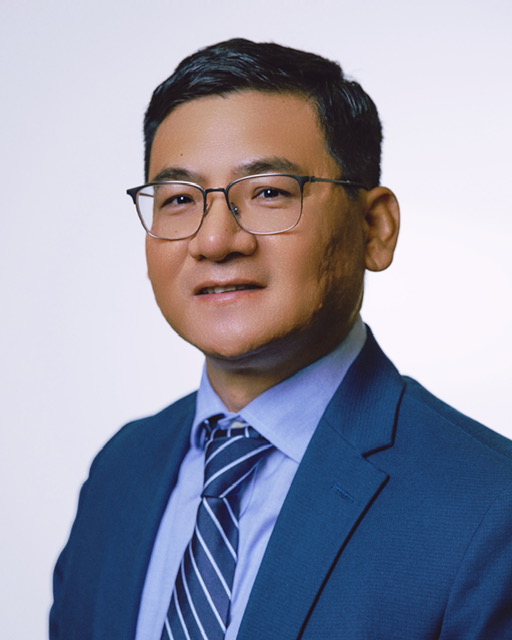
Dr. Jason Li
Associate Professor of Counseling
College of Applied Studies
Dr. Jason Li is an Associate Professor of Counseling in the Department of Intervention Services and Leadership in Education at Wichita State University. He holds a Master's in School Counseling from Western Kentucky University and a PhD in Counselor Education and Supervision from Texas Tech University. A Licensed Clinical Professional Counselor (LCPC), National Certified Counselor (NCC), and Certified Career Counselor (CCC), Dr. Li's research focuses on career development, assessments, and mental health issues affecting underrepresented groups in schools. He is a past president of the Kansas Counseling Association and an active member of the American Counseling Association and National Career Development Association.
Project Abstract
This project aims to explore the use of Generative AI (GenAI) as an innovative tool for counselor education and training. Specifically, we will explore how GenAI can enhance role-playing exercises by enabling the AI to simulate diverse client personas based on parameters we define. The purpose of this study is to evaluate whether GenAI-based training is an effective method in fostering counselor development and establish a base model for generating parameters for GenAI to act as an interactive case-study training modality. Over two semesters, 30-40 counseling graduate students will be invited to participate in this study. Using a Design-Based Research (DBR) approach, we will evaluate the GenAI-based training and collect both qualitative and quantitative data to assess its impact. The findings will provide insights into the integration of AI in counselor education and its potential as a dynamic and innovative training tool.
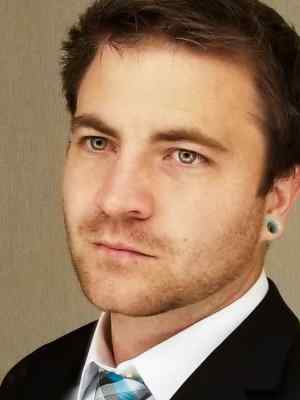
Dr. Philip Mullins
Associate Professor of Counseling
College of Applied Studies
Dr. Philip Mullins is an Associate Professor of Counseling and Co-Chair of the Department of Intervention Services and Leadership in Education at Wichita State University. He holds a Master’s in Clinical Mental Health Counseling from Adams State University and a PhD in Counselor Education and Supervision from the University of Wyoming. Dr. Mullins is a Licensed Professional Counselor with a research focus on athlete mental health and counselor training practices. He is a member of the Kansas Counseling Association Board and an active member of the American Counseling Association.
Project Abstract
This project aims to explore the use of Generative AI (GenAI) as an innovative tool for counselor education and training. Specifically, we will explore how GenAI can enhance role-playing exercises by enabling the AI to simulate diverse client personas based on parameters we define. The purpose of this study is to evaluate whether GenAI-based training is an effective method in fostering counselor development and establish a base model for generating parameters for GenAI to act as an interactive case-study training modality. Over two semesters, 30-40 counseling graduate students will be invited to participate in this study. Using a Design-Based Research (DBR) approach, we will evaluate the GenAI-based training and collect both qualitative and quantitative data to assess its impact. The findings will provide insights into the integration of AI in counselor education and its potential as a dynamic and innovative training tool.
Current URCA Awards

Dr. Abdulaziz Abubshait
Assistant Professor of Psychology
Fairmount College of Liberal Arts and Sciences
Dr. Abubshait is an Assistant Professor of Psychology at Wichita State University. He received a Ph.D. in Human Factors and Applied Cognition from George Mason University and completed a postdoctoral fellowship at the Italian Institute of Technology. Aziz was also awarded the AAAS-STPF fellowship where he worked at the National Institute on Aging. His research investigates human interactions with robots and artificial agents with the goal of designing machines, robots, and AI systems that serve as better collaboration partners.
Project Abstract
By 2030, a fifth of U.S. workers will be over 65, presenting urgent challenges for sustaining workforce productivity in an increasingly technology-driven economy. Although older workers often possess strong cognitive capabilities, they frequently lack access to effective training resources that enable them to adapt to new technologies. This gap accelerates skill obsolescence and premature retirement. Social robots offer a promising solution: As learning guides, they can capture attention, provide consistent feedback, and facilitate skill acquisition. This pilot study investigates whether social robots can effectively induce attentional shifts in the aging workforce, a critical first step toward developing robot-assisted training systems. As such, this pilot will assess (A) the acceptance of social robots among older workers, (B) their ability to direct attention during complex tasks, and (C) the relationship between robot acceptance and attentional guidance. Findings will establish preliminary evidence on whether robots can serve as effective attentional guides in learning contexts. Ultimately and beyond this work, we aim to investigate the use social robots to directly enhance training efficiency, reduce errors, and extend the productive participation of older adults in the workforce, addressing a nationally recognized priority for economic sustainability and aging policy.

Dr. JaeHwan (Jay) Byun
Associate Professor School of Education
College of Applied Studies
Jaehwan Byun, Ph.D., is an Associate Professor and the chair of the M.Ed. in Learning and Instructional Design Program at Wichita State University, specializing in Instructional Design and Technology. His recent research activities emphasize innovative educational approaches, including generative AI applications, AI-assisted lesson planning, Online learning in developing countries, and digital game-based learning designed to support refugee students. Dr. Byun has secured significant research funding, notably from NASA for enhancing STEM education in Kansas public schools and through Wichita State University's President Convergence Science Initiative. Recognized for his impactful contributions, Dr. Byun was recently named the 2025–26 Corbin Connect Emerging Technologies Fellow. His dedication to excellence has also earned him awards such as Wichita State’s Excellence in Online Teaching and the Technology & Innovation Award. Actively involved in academia, Dr. Byun serves in key roles within professional associations, frequently presents at international conferences, and mentors graduate students, driving forward transformative advancements in educational technology.
Project Abstract
The rapid integration of Generative Artificial Intelligence (GenAI) into K-12 education has created an urgent need for research-based guidance, yet a critical gap exists in the empirical understanding of how teachers are actually using this new technology. Most current literature is conceptual, lacking real-world, classroom-based evidence of teacher adaptation. To fill that gap, this study conducts a foundational needs assessment of in-service K–12 teachers in the Wichita metropolitan area. The primary goal of the project is to investigate current teacher practices, perceived challenges, and critical support needs related to GenAI. Employing a mixed-methods sequential design, the study will begin with a quantitative survey of approximately 100 teachers to identify patterns of use, followed by in-depth qualitative focus groups to explore the nuances of teacher experiences. The findings will provide a crucial empirical snapshot of the regional landscape, moving beyond speculation to offer data-driven insights for researchers and policymakers. Significantly, this project aims to serve as essential pilot data for a future external grant proposal to formally establish The Applied GenAI in Education Lab (A^2E Lab) at Wichita State University, envisioned as a regional hub for fostering innovation and ethical integration of AI in education.
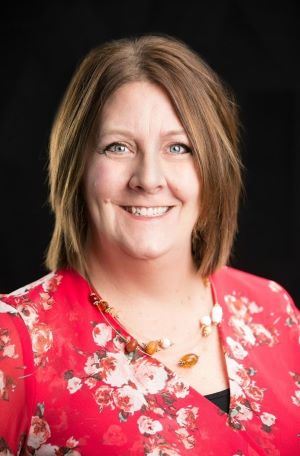
Dr. Amy Chesser
Professor of Public Health Sciences
College of Health Professions
Dr. Chesser is a Professor in the Department of Public Health Sciences at Wichita State University. She holds a doctorate in health communications. Her primary research interests are public health, women’s health, health communication, health literacy, health disparities, and older adults. She has taught multiple communications courses at the graduate and undergraduate levels including Health Communications, Health Communications for Older Adults, Social Marketing, Organizational Communications, Global Public Health Communications, and Introduction to Communications. She has twenty years of experience working in health literacy and is a part of the Health Literacy Regional Network. Dr. Chesser was awarded the Quality Matters National Certification: AGE 804 Aging Programs and Policies and AGE 717: Health Communications. She has received the WSU Gold Standard award for all other classes that she has taught. In 2016, Dr. Chesser received the Excellence in Research Award for the College of Health Professions. She has worked with Behavioral Risk Factor Surveillance Survey (BRFSS) data for more than a decade. The survey includes a Diabetes Risk Assessment as well as health literacy questions. Currently, Dr. Chesser is collaborating with Drs. Keene Woods and Drassen Ham on activities for Interprofessional Education through National Interprofessional Healthcare Education and Research Team (NIHEART).
Project Abstract
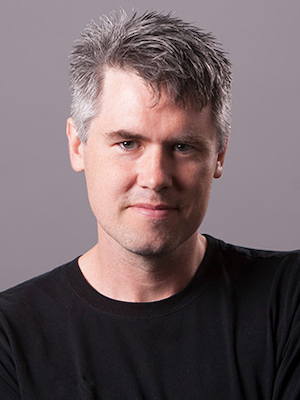
Dr. Francis X. Connor
Associate Professor and Chair Department of English
Fairmount College of Liberal Arts and Sciences
Project Abstract
This year the Wichita State Department of English unveiled a new humanities makerspace, the Robert L. Cattoi Book Technologies Lab, intended for use as a teaching space where students can explore the history of human communication through engagement with technologies used to make books and other texts, from wax tablets and scrolls to letterpress printing and digital publishing. To this end this URCA grant will fund a student research assistant to work in the Cattoi Lab alongside faculty to develop teaching resources that demonstrate how such labs can enrich the study of writing, printing, publishing, and digital humanities. The project has two interrelated goals: (1) to develop practical teaching resources, such as sample exercises and classroom-tested modules, that accompany those arguments; (2) to generate scholarly publications that argue for the pedagogical value of Book Labs, offering replicable teaching strategies for humanities (and humanities-adjacent) faculty who want to integrate hands-on book history into courses. We hope this work will culminate in publications that provide guidance on how instructors could incorporate Book Labs into traditional humanities instruction. This project contributes to ongoing debates about how to connect historical media to contemporary pedagogy, and provides students with active learning opportunities and professional development in research, editing, and publication. The Cattoi Book Technologies Lab is the first such space in Kansas and one of a handful currently based in American universities generally, so scholarship produced with this grant is likely to be highly impactful.

Dr. Yanwu Ding
Associate Professor of Electrical and Computer Engineering
College of Engineering
Yanwu Ding is a faculty member with the Department of Electrical and Computer Engineering at Wichita State University. Her research portfolio spans advanced signal processing algorithms for communication systems. Specific interests include robust fetal electrocardiogram (ECG) signal extraction using time-frequency techniques, geolocation, Doppler frequency estimation, and blind receivers. She also applies machine learning to jamming analysis and develops precoding techniques to save transmitting power while maintaining Quality of Service (QoS) in communication systems. Dr. Ding's work has been supported by a US Air Force SBIR grant, and she was selected for the prestigious Summer Faculty Fellowship Program (SFFP) at the Air Force Research Laboratory (AFRL).
Project Abstract
The non-invasive fetal electrocardiogram (fECG) is crucial for monitoring fetal health, but its clinical adoption is limited by a low signal-to-noise ratio (SNR). The weak fECG is often obscured by the dominant maternal ECG (mECG) and noise in abdominal recordings. To address this, we introduce a novel framework based on the Synchrosqueezing Transform (SST), which produces a high-resolution time-frequency representation to disentangle the overlapping fetal and maternal components. Our goal is to develop and validate a robust, open-source algorithm for accurate fECG extraction from a single-channel recording, enabling reliable heartbeat detection and morphological analysis. This work aims to pave the way for simpler, more accessible, and accurate fetal monitoring solutions.
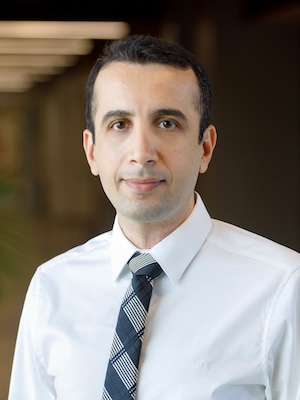
Dr. Ahmad Esmaeili
Assistant Professor in School of Computing
Fairmount College of Liberal Arts and Sciences
Dr. Ahmad Esmaeili is an Assistant Professor of Computer Science in the School of Computing at Wichita State University, where he leads the Multiagent Systems Lab. His research interests lie at the intersection of artificial intelligence and distributed systems, with a particular focus on multi-agent systems, hierarchical and holonic agent architectures, distributed machine learning frameworks, and collaborative learning methodologies. Dr. Esmaeili received his Ph.D. from the Department of Computer and Information Technology at Purdue University, where his research explored the design and development of decentralized agent-based machine learning frameworks. His work has been published in reputable peer-reviewed venues, including ACM Transactions on Internet Technology, ACM Transactions on Adaptive and Autonomous Systems, and International Conference on Autonomous Agents and Multiagent Systems. Dr. Esmaeili is an active member of the IEEE, ACM, and AAAI societies and has served on the program committees and review boards of numerous conferences and journals in the domain of artificial intelligence.
Project Abstract
Decentralized multi-agent systems (MAS) offer scalable, robust, and adaptive decision-making without the need for centralized control. These systems are particularly valuable in distributed environments where flexibility, redundancy, and parallelism are essential. However, the effectiveness of collective learning within such systems critically depends on how—and with whom—agents communicate. The structure and quality of these interactions directly impact how well information propagates, how quickly agents align on shared goals, and how efficiently they adapt to new data, much like in human societies—where communication networks shape cooperation, innovation, and learning.
While prior research acknowledges the importance of network topology in influencing MAS performance, it often imposes simplifying assumptions. Common approaches treat communication structures as fixed, assume agents operate on independently and identically distributed data, or rely on predefined adaptation rules. These assumptions limit our understanding of how variations in communication architecture influence learning outcomes, particularly in systems where interactions are central to coordination and knowledge diffusion.
This study investigates how different peer-to-peer interaction structures—specifically, variations in network density and topology—affect learning efficiency, convergence behavior, and computational cost in MAS. Using computational experiments, we will evaluate a range of network configurations to identify key trade-offs between system connectivity, performance, and resource consumption. The insights gained will clarify these trade-offs, informing the design of more efficient MAS architectures. This has implications for real-world domains such as autonomous vehicles, robotic swarms, and IoT systems, where understanding these structural impacts is crucial for optimizing performance under practical communication and resource constraints.
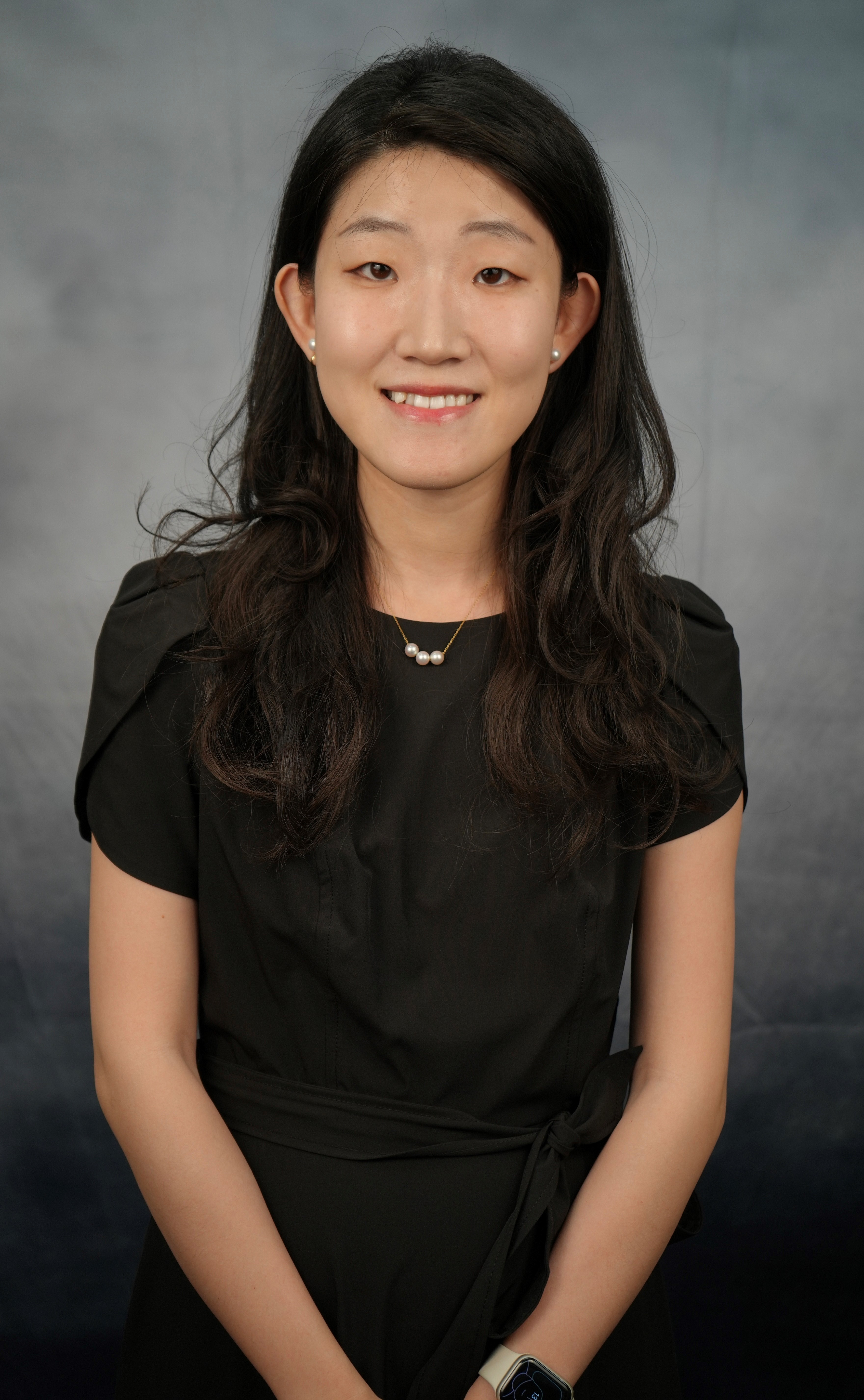
Dr. Yang Fu
Assistant Professor of Elementary Education
College of Applied Studies
Yang Fu is an Assistant Professor in the School of Education at Wichita State University. She earned her Ph.D. in Special Education from the University of Maryland, College Park in 2025, where her work centered on improving instructional opportunities for diverse learners. As a researcher, educator, and teacher educator, her scholarship focuses on fostering equity and expanding access to high-quality, effective instruction for underrepresented student populations, including students with disabilities and English Learners. She is particularly committed to addressing the systemic challenges that limit students with disabilities from receiving rigorous and meaningful instruction across content areas. Through her work, Dr. Fu aims to bridge research and practice by partnering with schools, supporting teacher preparation, and advancing evidence-based approaches that promote equitable learning outcomes for all students.
Project Abstract
Students with disabilities continue to face persistent challenges in mathematics learning, underscoring the critical role of teachers in shaping equitable learning opportunities. However, many educators report barriers to effectively addressing diverse student needs, while teacher candidates often feel underprepared to teach mathematics to students with disabilities. This study investigates these challenges from both practitioner and preparation perspectives by examining the experiences of teachers in Wichita Public Schools and teacher candidates enrolled in Wichita State University’s College of Applied Studies. The study explores instructional practices, preparation experiences, and systemic supports and constraints that influence mathematics instruction for students with disabilities. The analysis will identify key factors shaping teacher preparedness, including access to targeted training, professional learning opportunities, and program-level collaboration. Findings will inform professional development design, strengthen district–university partnerships, and provide actionable insights for enhancing teacher preparation programs. Ultimately, this study aims to bridge research and practice by identifying strategies to improve equitable mathematics instruction for students with disabilities and by fostering a shared understanding among teacher educators, candidates, and practicing teachers about the supports needed to ensure all learners—particularly those with disabilities—have access to meaningful and high-quality mathematics learning experiences.
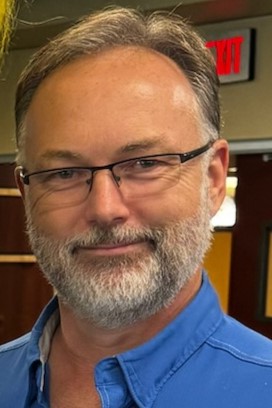
Dr. Greg Houseman
Professor of Biological Sciences
Fairmount College of Liberal Arts and Sciences
Dr. Greg Houseman is a Professor in the Department of Biological Sciences. His research and teaching focuses on approaches to restore and manage native prairies in Kansas. He has worked in prairie and savanna ecosystems in Michigan, Illinois, and Kansas. In addition to his research and teaching, he is also the Director the Wichita State Biological Field Station, which includes sites near Viola, Waterloo, and Beaumont Kansas.
Project Abstract
Plant diversity in restored prairies is often much lower than intact, native prairies limiting the conservation value of restoration efforts. One likely cause of this low plant diversity is low environmental heterogeneity caused by years of soil tillage. Additionally, seeds in native prairie typically disperse in a spatially aggregated way while prairie restoration projects generally sow seeds in an equal and even mixture of all species potentially undermining natural spatial separation that may be necessary to build and maitain a diverse plant community. My hypothesis is that environmental heterogeneity from soil and seed arrival are important for high plant diversity in prairies. To address these ideas, my lab has established a field experiment to test whether 1) soil heterogeneity increases plant diversity and 2) if these effects depends on spatial structure of seed arrival. One major challenge for this research is that obtaining answers to these questions requires long‐term data because the plant species are long‐lived and plant competition takes time to develop. Likewise the data necessary to understand how environmental variability contributes to the observed patterns require numerous students and technicians to collect data each year. Consequently, my goal is to collect data from this experiment in 2025 that will be used to support an external NSF grant proposal for longer-term data collection.
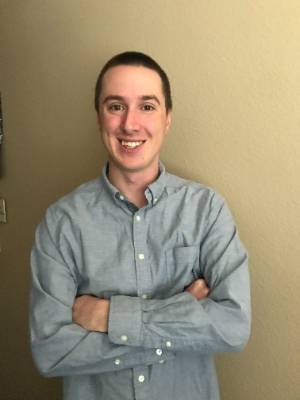
Dr. Matthew D. Howland
Assistant Professor of Anthropology
College of Liberal Arts and Sciences
Dr. Matthew D. Howland is an anthropological archaeologist whose research focuses on the application of digital 3D and spatial methods to the study of the past. Dr. Howland is the director of the Geospatial Archaeology Laboratory at Wichita State University and received his PhD and MA from the University of California San Diego and his BS/BA from Penn State. His research involves the application of low-altitude aerial remote sensing, including UAV/drone-based photography, to record and map archaeological sites in 3D and conduct intra-site spatial analyses in GIS. Dr. Howland also applies 3D and spatial storytelling platforms for community-engaged digital public archaeology. Dr. Howland is engaged in active field research in Kansas, Georgia, and the Eastern Mediterranean. His work has been published in journals such as the Proceedings of the National Academy of Sciences, PLOS One, Journal of Archaeological Science, and Advances in Archaeological Practice, and has been covered in media outlets including CNN, Vice, and Newsweek.
Project Abstract
This project aims to quantify the risks posed by anthropogenic coastal erosion to archaeological sites, using sites on the Atlantic coast of Georgia as a case study. Coastal erosion is driven by long-term processes of sea level rise/tidal variation and short-term disaster events such as storm surge caused by hurricanes, both of which are increasing in severity due to anthropogenic climate change and landscape modification. Archaeologists are well-aware of the threat posed by these processes to coastal archaeological sites but lack understanding of the relative contribution of damage to coastal sites from these long-term and short-term processes. This project aims to quantify the impacts of coastal erosion through multiscalar analysis of erosion on archaeological sites. At regional scale, I will use multispectral band indices on historic Landsat imagery to track erosion/accretion on the Georgia coast since the 1970s and in the aftermath of major storm events during this period, comparing results to the distribution of archaeological sites along the coast to understand which sites have been impacted. At site scale, I will precisely quantify erosion by intensively recording archaeological sites in 3D at 6 month intervals and in the aftermath of major storms, if funding permits, over the project period using UAV-based LiDAR scanning. This work will provide time-series data on the damage done to at-risk sites by erosion at millimeter/centimeter scale. Project results will therefore provide a multiscalar understanding of how coastal erosion impacts archaeological sites and the relative contribution of long and short-term risk factors in causing erosion.
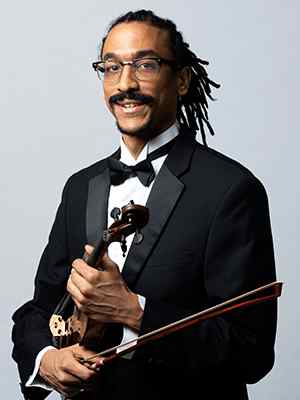
Dr. Timothy Jones
Assistant Professor of Violin
College of Fine Arts
Dr. Timothy Jones is an artist, teacher, and performer with roots in Kansas and branches across the Americas. He serves as Associate Concertmaster of the Wichita Symphony Orchestra and Assistant Professor of Violin at Wichita State University, as well as Concertmaster of the Wichita Grand Opera and Ballet Wichita Orchestras. Jones holds degrees in Music Education and Violin Performance, having received his doctorate in Performance. He has performed as soloist, concertmaster, and chamber musician in North and South America. Jones performs frequently with the Fairmount String Trio, a WSU faculty ensemble. Recent highlights for the Trio include an acclaimed performance with Rachelle Goter at the International Clarinet Association Annual Conference, and multiple presentations of Mozart and Brahms Quintets in Kansas and Iowa. As a soloist, since returning to Kansas in 2018, Jones has performed the Bach Double Concerto with the Wichita Symphony, the Tchaikovsky and Mendelssohn Concertos with the Hutchinson Symphony, and Beethoven Romance No. 2 with the Independence Symphony Orchestra. In addition to his performing career, Jones is an avid educator of students of all ages, and has worked throughout his career as both private and classroom instructor. He taught strings in the Wichita Public Schools, and has taught and performed at music festivals in the United States, Mexico, and Brazil. In 2023, Jones’s contributions to the professional artistic community of Wichita were recognized by the Wichita Arts Council Burton Pell Achievement in Music Award, as well as the receipt of a Koch Cultural Trust Enabling Grant, and an Artist Access Grant from the City of Wichita Arts and Cultural Services Division.
Project Abstract
The fine arts have always been both cause and effect of shifts in human thought. While music, visual, and performing arts have reflected human culture throughout history, they have also influenced its trajectory; art is often the medium through which society processes controversial or innovative ideas. Modern professionals in music are charged to work fervently toward innovation and inclusion in our artistic output, lest our concert halls remain museums of the sounds of colonial Europe. Toward this end, the creation and performance of new compositions — by and for the living — must be catalyzed. This grant supports the composition of a large-scale orchestral work by composer Robert J. Hagenbuch Jr., and the production of a World Premiere performance of said work on the WSU campus in Fall 2024. The work will feature two WSU College of Fine Arts faculty members as well as the University Symphony Orchestra, an ensemble comprised of 50-60 School of Music students. In addition to composing the work, the composer will conduct a brief residency at Wichita State prior to the premiere, providing rehearsal coaching for the Symphony Orchestra and a masterclass within the Composition studio. Commissions and world premieres of this scale are rare within the academic world, making this project a unique and powerful demonstration of the level of artistic excellence and innovation within the WSU College of Fine Arts.

Dr. Michael Jorgensen
Professor of Industrial, Systems, and Manufacturing Engineering
College of Engineering
Michael Jorgensen, PhD, has been at Wichita State University (WSU) since 2001, he is a Professor in the Industrial, Systems and Manufacturing Engineering (ISME) Department, and served as the founding Chair of the Biomedical Engineering Department at WSU. Dr. Jorgensen is responsible for the Industrial Ergonomics curriculum and research within the ISME Department. His research activities have included assessment of intervention strategies for prevention of work-related injuries, including passive shoulder exoskeletons in the aircraft and construction industries, job rotation in manufacturing, interventions to reduce the risk of low back injury during manual materials handling, and assessment of segmental vibration from rivet guns and bucking bars to reduce vibration exposure and risk of musculoskeletal injury to aircraft manufacturing workers. Prior to joining WSU Dr. Jorgensen was an Industrial Engineer and Ergonomist with the U.S. Occupational Safety and Health Administration, in the Office of Ergonomic Support in Washington, DC, where he provided ergonomics support for OSHA ergonomics regulatory and enforcement activities. He also worked as a consultant for an ergonomics consulting firm and has consulted with companies within Wichita and nation-wide on evaluation and development of processes to reduce work-related injuries in manufacturing and office settings.
Project Abstract
Shoulder musculoskeletal disorders (MSDs) impose a disproportionate burden in the construction industry, with fewer cases than back injuries but substantially longer disability durations and higher claim costs. Passive arm-support exoskeletons (ASEs) have shown promising reductions in shoulder muscle demand during elevated-arm tasks in laboratory settings, yet field evidence on trade- and task-specific suitability remains limited. This project aims to generate a Trade/Task-to-ASE Suitability Map and a ranked shortlist of construction tasks where ASEs can provide maximal benefit with minimal workflow interference. We will use a mixed-methods design integrating literature review, jobsite observations, structured worker/manager interviews, and ergonomic screening. First, we will synthesize existing literature and O-NET data to build an initial database of potentially ASE-suitable tasks by trade and identify knowledge gaps. Partnering with multiple construction companies across trades, workers will trial a commercial shoulder ASE for up to three days while performing their usual tasks. They will then rate ASE suitability for each task on a 1–5 Likert scale, comment on perceived benefits and constraints (e.g., confined spaces, harness/toolbelt compatibility), and provide subjective feedback on discomfort and perceived exertion. Tasks rated suitable will undergo ergonomic analysis and, when permitted, video-based documentation of shoulder postures. Survey ratings, qualitative feedback, and observational data will be integrated to develop the Trade/Task-to-ASE Suitability Map and ranked shortlist. The resulting evidence will offer field-grounded guidance to contractors, safety professionals, and technology developers regarding where and how to deploy ASEs, reduce trial-and-error implementation, and ultimately help lower the burden of shoulder MSDs in construction.

Dr. Shruti Kshirsagar
Assistant Professor School of Computing
College of Engineering
Dr. Shruti Rajendra Kshirsagar is an Assistant Professor in the School of Computing at Wichita State University (WSU), where she specializes in artificial intelligence, assistive technologies, medical image processing, audio processing, and multimodal signal analysis. She holds a PhD in Telecommunications from INRS, Montreal, Canada, and leads the SoundMind Neurovision Innovation Lab at WSU. Her team investigates innovative AI applications in healthcare, such as brain tumor segmentation, ECG classification, and cognitive load assessment, as well as advancements in assistive technologies, including deepfake detection and audio event analysis.
Dr. Kshirsagar serves as the Graduate Coordinator for the MS Data Science program and as the Awards Chair for the IEEE GreenTech Conference 2025. She has been recognized with the INRS Best Doctoral Thesis Award. Dr. Kshirsagar is committed to advancing impactful research at the intersection of deepfake detection, assistive technology, and human health, driven by her passion for data science and AI
Project Abstract
The rapid growth of generative AI technologies has led to increasingly convincing deepfakes, now extending beyond visual manipulation to audio and multimodal data. While deepfakes have potential benefits, such as in speech restoration, they pose significant risks for identity theft, misinformation, and voice biometrics fraud. This project is dedicated to developing a robust, accurate, and interpretable system for audio deepfake detection by integrating handcrafted feature extraction with advanced deep learning models. This project explores feature extraction techniques for detecting deepfake audio using a combination of handcrafted features—modulation, OpenSMILE, log-Mel spectrograms, and quality-based measures—and deep learning models, including ResNet and RNNs. The main research goal is to develop a robust, interpretable, and generalizable system for detecting diverse deepfake attacks, contributing to digital media security and explainable AI (XAI) solutions. Current detection systems often face challenges related to their “black box” nature, which limits transparency and hampers trust in AI decision-making, particularly in sensitive areas. By designing a hybrid system, this research ensures that high-dimensional, nuanced artifacts in synthetic audio are detectable while also improving model interpretability, making detection results more understandable for end users. The proposed system will be rigorously benchmarked using the ASVspoof5 dataset to evaluate performance across both in-domain and out-of-domain scenarios, ensuring resilience and generalization across various types of deepfake manipulations. This project’s contributions are expected to enhance digital media security by providing a practical and interpretable detection tool applicable in critical fields like law enforcement, biometrics, and media verification, where high accuracy and reliability are essential. With a focus on improving both detection accuracy and interpretability, this research aims to create a deeper understanding of AI-based detection systems and promote trustworthy AI applications in the context of audio security challenges.

Dr. Yeil Kwon
Assistant Professor of Mathematics and Statistics
Fairmount College of Liberal Arts and Sciences
Dr. Kwon is an Assistant Professor in the Department of Mathematics, Statistics, and Physics at Wichita State University. His research centers on empirical Bayes estimation methods for high-dimensional data, with broader interests in parameter estimation, statistical modeling for social sciences, and data science education. He earned his Ph.D. in Statistics from the Fox School of Business at Temple University, an M.S. in Operations Research with a concentration in Financial Engineering from Columbia University, and an M.S. in Statistics from Korea University. Dr. Kwon brings extensive industry experience to his academic work. He previously served as a quantitative analyst at a hedge fund, where he developed options trading strategies using stochastic models. As a principal portfolio manager at an insurance company, he managed $12 billion in assets, applying advanced analytics to assess credit risk and customer behavior. Additionally, he worked as a credit risk analyst at leading credit bureaus, designing predictive models for credit risk, bankruptcy, and fraud detection. His expertise contributed to major projects with Fair Isaac Corporation (FICO) and Experian, where he played a key role in developing advanced credit risk systems for financial institutions.
Project Abstract
Bayesian statistics, first introduced by Thomas Bayes in the 18th century, remained
largely unused for over two centuries due to computational complexity. With advances
in computing and algorithms, Bayesian methods have become integral to modern data
science, statistics, and machine learning, including applications in artificial intelligence.
A particularly promising area for Bayesian approaches is high-dimensional data analysis,
where the number of variables far exceeds the number of observations—a common scenario
in fields such as genomics and molecular biology. For example, a well-known leukemia
study measured over 7,000 genes from only 72 patients. In such cases, traditional
methods fail to provide reliable
estimates of variability or correlation.This project proposes a novel empirical Bayes
estimator designed for high-dimensional settings. The method leverages information
across the entire dataset to improve estimation accuracy for individual variables,
especially when sample sizes are small. Unlike previous approaches, it offers greater
flexibility by avoiding restrictive assumptions about underlying probability distributions
while retaining the theoretical rigor and adaptability of Bayesian methods. We will
evaluate the proposed estimator using both simulated and real-world datasets, including
genomics, proteomics, and medical imaging. The anticipated outcome is a robust tool
for analyzing complex, high-dimensional data, with direct implications for precision
medicine, genetics, and other domains where reliable inference from limited samples
is critical
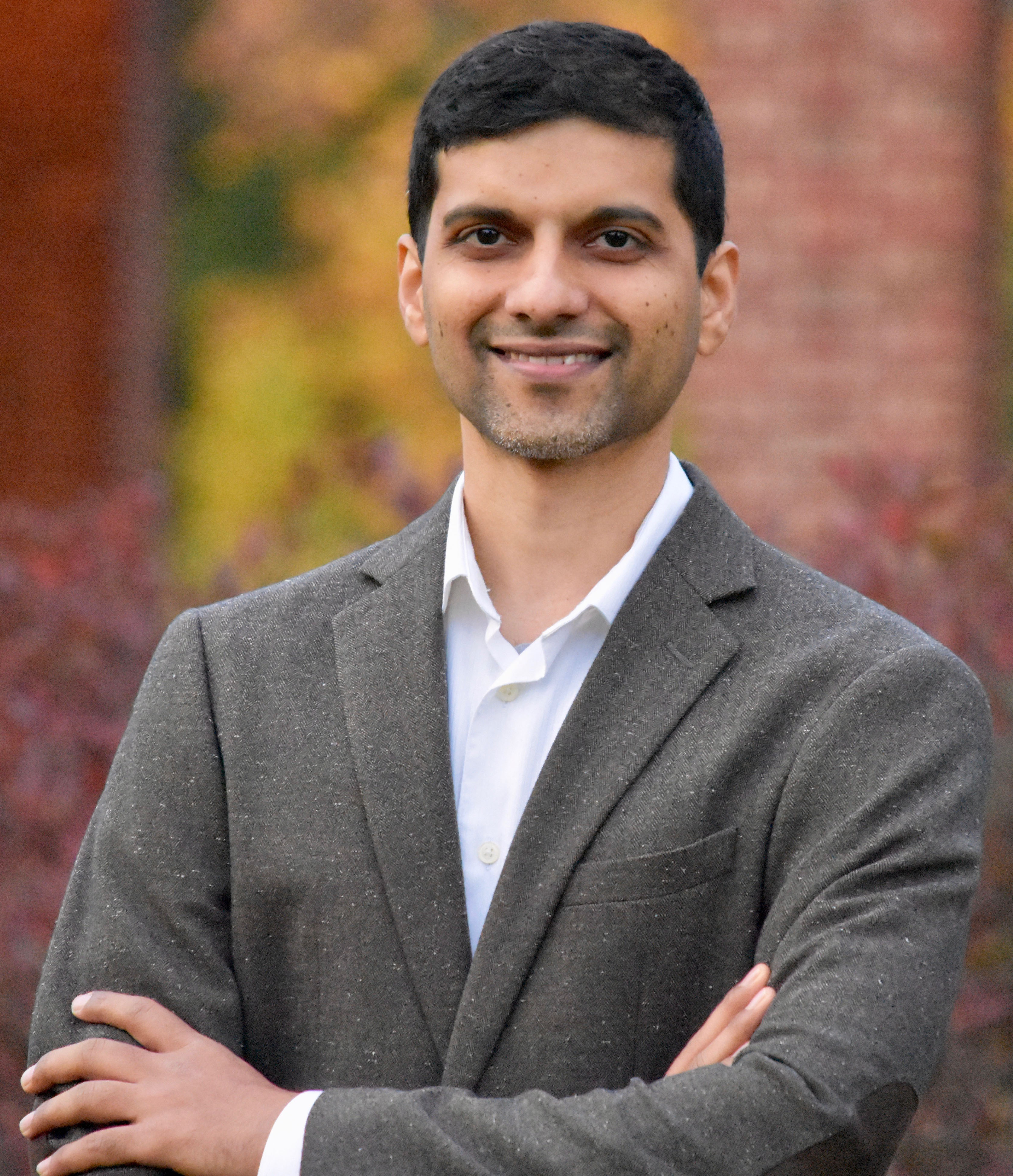
Dr. Raj Logan
Assistant Professor of Biological Sciences
Fairmount College of Liberal Arts and Sciences
Raj is an Assistant Professor of Biological Sciences and directs the WSU DAISY Lab. His lab uses the fruit fly, Drosophila, as a model system to investigate the cellular and molecular mechanisms of organ formation during embryogenesis. Raj attended the Madras Medical College, India, for undergraduate training and the University of Kansas Medical Center for graduate school. He performed postdoctoral research at the Johns Hopkins University School of Medicine prior to starting his research group at WSU.
Project Abstract
Iron is a critical element for cell survival and maintenance. Recent reports suggest a requirement for iron, particularly in neural stem cells, during critical stages of brain development. Without adequate iron supply, neural stem cells lose the ability to produce ATP (the cellular energy source) due to the dysfunction of iron-dependent proteins essential for ATP production. ATP scarcity results in the cessation of neural stem cell division—an energy intensive process—compromising normal brain development. Iron-deficient stem cells fail to maintain their cornerstone characteristic, i.e., stemness, consequently activating premature cell differentiation programs. Ultimately, neural stem cell dysfunction, triggered by iron deficiency, results in stunted brain growth. The WSU Developmental and Integrative Systems Biology laboratory (DAISY Lab) will investigate the biological mechanism of iron transport into the neural stem cell using the Drosophila melanogaster (fruit fly) larval brain as the model system. Our findings are expected to reveal the mechanism that mediates iron transport in neural stem cells during a critical stage of brain development.
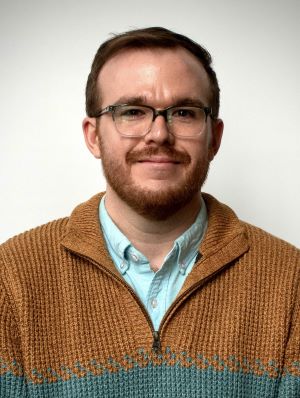
Dr. Trevor R. Nelson
Assistant Professor of Musicology
College of Fine Arts
Dr. Trevor R. Nelson (he/him) is Assistant Professor of Musicology at Wichita State University. Central to his teaching, research, and service are questions of how music education practices and institutions contribute to and maintain historical inequities, as well as the drive to develop practical solutions to create a more just artistic world. His research concerns the post-World War II British Commonwealth and how music informed the development of a globally minded Britishness. His writing has appeared in Twentieth-Century Music, Ethnomusicology Review, NABMSA Reviews, and Notes. At Wichita State University, Dr. Nelson teaches undergraduate courses in music history, global music cultures, and popular music studies, as well as graduate seminars in Listening to Empire, and Music, Childhood, and Youth. He completed his Ph.D. at the Eastman School of Music—University of Rochester in 2023.
Project Abstract
Musicologists and cultural historians have considered the ways imperial expansion influenced how musicians and listeners conceived of British musical identity (Ghuman 2014; Richards 2002; Webster 2005). Yet scholars have ignored the effect of mid-twentieth century imperial decline on musical Britishness. With the British Empire’s decline in the mid-twentieth century, how was musical Britishness adapted to foster a globally minded outlook on citizenship and positive relations with former colonial holdings? In this project, I examine how musicians used their art in instructing Britons about imperial decline and the Commonwealth’s formation as a post-imperial cultural collective. This project concerns six case studies from multiple musical genres, from children’s operas to concept albums. The study will result in a monograph titled Let’s Make A Commonwealth: Musical Britishness at the Twilight of Empire, where I argue that music and sound were tools in teaching new modes of global citizenship; thus, Britons heard the decline of their Empire, the deimperializing process, and the Commonwealth’s formation. With URCA funding, I will travel to the UK to visit three archives (The Britten-Pears Foundation Archive in Aldeburgh, The Mass-Observation Project Archive in Brighton, and the Llyfrgell Genedlaethol Cymru in Aberystwyth) and view primary sources necessary to complete my monograph. Ultimately, I establish music’s use in instructing the British people about their nation’s new place in the global matrix of power, thus providing new insight into the study of cultural transmission, the politics of national heritage, and the United Kingdom’s continued reckoning with race and imperial identity.
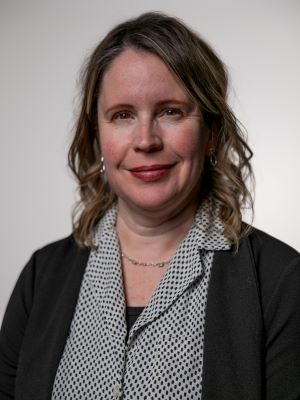
Dr. Erin O'Bryan
Assistant Professor of Communication Sciences
College of Health Professions
Dr. Erin O’Bryan, PhD, CCC-SLP, is an Assistant Professor in the WSU Department of Communication Sciences and Disorders, Director of the Wichita Adult Language Lab, and a member of the Institute for Rehabilitation Medicine and Assistive Technology (IRMAT). Before coming to WSU in 2019, she completed a Ph.D. in Linguistics and a master’s degree in speech-language pathology at the University of Arizona. Her clinical research projects advance the use of music and person-centered storytelling in speech therapy for people with aphasia, a loss of language and communication abilities that frequently results from a stroke. She also conducts research measuring the benefits of training current and future healthcare professionals on how to communicate effectively, respectfully, and compassionately with patients with communication disorders. She has published eight peer-reviewed journal articles and led or co-led numerous grant-funded research projects.
Project Abstract
Every year, more than 795,000 people in the United States have a stroke, and approximately one third of stroke survivors have aphasia, a loss of their language and communication abilities. Research has shown that most health care professionals do not know what aphasia is and do not know how to communicate with people with aphasia. Our project will train future health care professionals about aphasia and communication strategies using Supported Conversation for Adults with Aphasia (SCATM). We will target the following specific objectives: 1) the PI (Dr. O’Bryan) will complete SCATM core training and “train the trainer” programs, 2) Dr. O’Bryan and a graduate student research assistant will use the training to develop a program for health professions students to be presented at WSU’s annual Aphasia Awareness Day in June 2026, 3) the attendees’ learning will be measured using a pretest and posttest, 4) the graduate research assistant will analyze the data, and 5) Dr. O’Bryan will use the research findings to submit a manuscript to a peer-reviewed journal and to submit an external grant proposal to further advance the research.
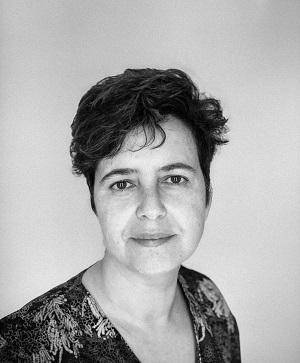
Dr. Claudia Pederson
Associate Professor of Art, Design & Creative Industries
College of Fine Arts
Claudia Costa Pederson received a PhD. in Art History and Visual Studies from Cornell University. She is the author of Gaming Utopia, Ludic Worlds in Art, Design, and Media(Indiana University Press, 2021). Her writings appear in various journals including Arteologie, Media-N, Review: Literature and Arts of the Americas, and Afterimage, and in edited volumes on film and media, including The Ethics of Documentary Film(2025) , Handbook of Documentary(2025) , Latin American Modernisms and Technology(2018), The Philosophy of Documentary Film(2016), Cinema em Redes:Tecnologia, Estetica e Politica na Era Digital(2016), and Indie Reframed: Women Filmmakers and Contemporary American Independent Cinema(2016). She is Associate Professor of Art History at Wichita State University, Kansas, curator for the Finger Lakes Environmental Film Festival at Ithaca College, New York, and recipient of the Andy Warhol Arts Writers Grant 2022.
Project Abstract
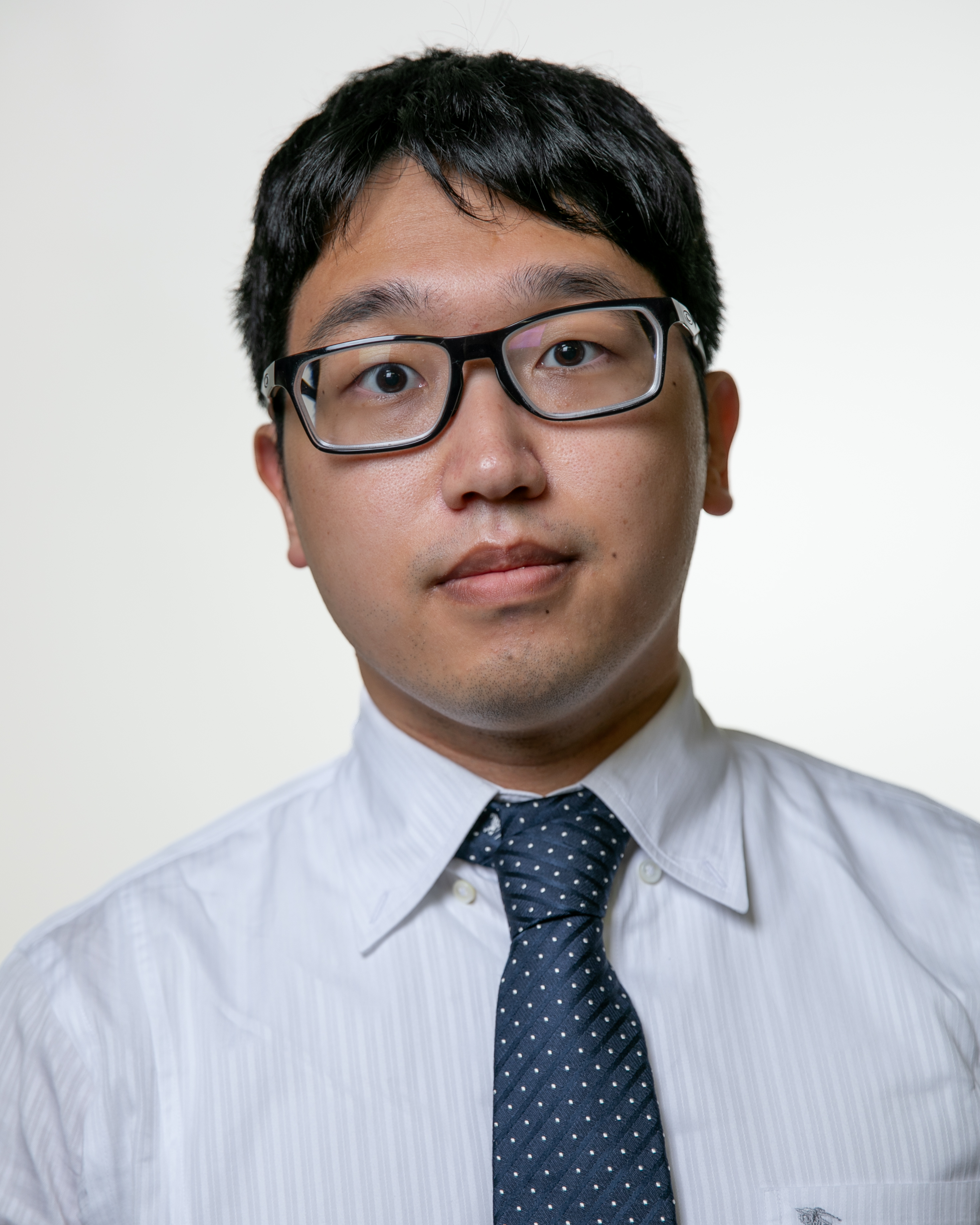
Dr. Tetsuya Sato
Assistant Professor of Human Factors Psychology
Fairmount College of Liberal Arts and Sciences
Dr. Tetsuya Sato is an Assistant Professor in the Department of Psychology at Wichita State University and the director of the Simulation, Automation Trust, and Oculomotor Laboratory (SATO LAB). He received his PhD in Human Factors Psychology from Old Dominion University in 2024. His research program aims to examine how humans interact with emerging advanced automated technologies and translate research outcomes to innovative solutions for improving human-automation/autonomy interaction. Specifically, he explores different factors that influence human performance, trust in automation/autonomy, and visual attention allocation in various domains including but not limited to aviation and surface transportation.
Project Abstract
Technological advancement in automation has enabled researchers to explore the use of robots in single pilot operation. Such technologies have anthropomorphic features that resemble a human pilot. To operate an aircraft safely, human pilots will be required to trust a well-developed and reliable agent to receive its benefit. This raises two key questions: Will human pilots develop trust in an automated agent with anthropomorphic features in flight operation? How will human pilots develop trust in high-risk environments? The objective of this proposed project is to conduct a preliminary study to investigate these research questions. Specifically, the proposed study will utilize a modified flight simulation task supported by an automated agent with varying voice and appearance. Participants will complete this modified flight simulation task across varying levels of risk. Findings from this proposed study will provide guidance for devising future research studies on trust in anthropomorphic agents in flight operations. Ultimately, the proposed research project will provide design insights to help pilots work more effectively with robotic teammates in flight operations.
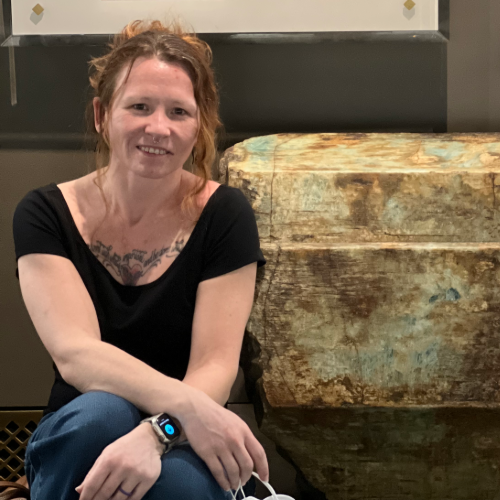
Dr. Melissa A. Scruggs
Assistant Professor of Geology
Fairmount College of Liberal Arts and Sciences
Dr. Melissa A. Scruggs is an Assistant Professor of Geology at Wichita State University. She earned her B.S. in Geology from the University of Missouri–Kansas City, her M.S. in Earth Science from California State University, Fresno, and her Ph.D. in Earth Science from the University of California, Santa Barbara. Her research examines magma storage conditions and eruption-triggering mechanisms at active volcanoes, including Chaos Crags, Kīlauea, and most recently Newberry Volcano. She teaches courses in Mineralogy, Petrology, Geochemistry, and Introductory Earth and Environmental Science. Dr. Scruggs has received two university-sponsored grants to support her ongoing work at Newberry Volcano and is a member of GSA, AGU, and IAVCEI. An advocate for accessible science education, Dr. Scruggs actively engages in public outreach by livestreaming science discussions and topics on Twitch and has delivered invited talks at Science on Tap and Missouri State University. She is currently mentoring graduate and undergraduate researchers and believes that everyone deserves the opportunity to learn, regardless of background or life circumstances.
Project Abstract
The 1300-year-old Big Obsidian Flow (BOF) is the youngest lava flow in Oregon, situated inside the active Newberry caldera. Although the United States ranks Newberry as its 13th most hazardous volcano, the location and condition of the magma body beneath Newberry caldera is not well-known. A set of newly collected samples from BOF show great promise for recording deeper parts of a magma system not typically preserved by high-silica lavas. Mafic enclaves preserve evidence of mafic recharge—hotter magma that travels from deep below to replenish shallow systems, often triggering volcanic eruptions. This study examines rare mafic enclaves collected from the vent of BOF—the last lavas erupted within Newberry caldera—to get a better understanding of the most recent state of the magma body (or bodies) beneath it. Two-pyroxene and mineral-melt equilibria will be used to estimate pressures (i.e., depths) of crystallization for enclave magmas, providing the first such estimate derived from mineral data. Finally, whole rock geochemical data, including never-before-measured Nd-isotopes, will be used to evaluate the relationship between mafic enclaves and their host BOF lavas, to better understand how the rhyolitic melts which have driven explosive volcanism at Newberry for the last ~5,000 years are formed.
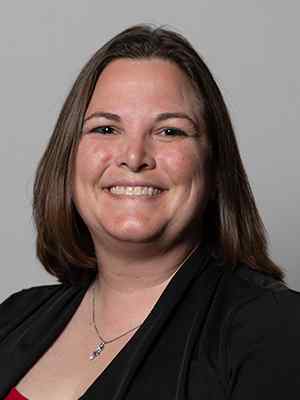
Dr. Maggie Ward
Assistant Professor School of Nursing
College of Health Professions
Dr. Maggie Ward is an Assistant Professor in the School of Nursing within the College of Health Professions. She began her career as a staff nurse in oncology in 2006. Since that time, she has worked a multitude of roles in the care of cancer patients, including research, nurse navigation and now as a genetics practitioner for hereditary cancer syndromes. Since starting at Wichita State University in 2021, her research has focused on oncology survivorship, hereditary cancer syndromes, cancer prevention and cancer screening. Her current focus of HPV vaccination is to determine current rates of vaccination, barriers to vaccination and ultimately, to further educate the community on the benefits of HPV vaccination, including the significant reduction in HPV-related cancers. Dr. Ward is honored to receive the URCA grant to begin this research endeavor and looks forward to further expanding her research over the coming years.
Project Abstract
In the United States, the human papilloma virus (HPV) causes nearly 21,700 cancers among women and 15,600 cancers among men each year. HPV is associated with cervical, vaginal, penile, anal, vulvar and oropharyngeal cancers. It is estimated that HPV is associated with 10% of cancers in women and 5% of cancers in men, while the HPV vaccination can prevent this viral infection; therefore, preventing the development of HPV-related cancers. This project proposes to assess the HPV vaccination rate among college age students, ages 18-24, specifically within the Wichita State University community, in order to determine barriers to vaccination, education needs of students related to HPV vaccination and determine potential opportunities to provide vaccination within the university community. Through the receipt of the URCA grant, monies will be used as seed funding for future research and application for funding through the National Institutes of Health and National Cancer Institute to expand to a larger population. In partnership with the Immunize Kansas Coalition, it is planned to expand this assessment study following the completion of this research and procure funding for students across the state of Kansas (especially those that are uninsured) to provide the HPV vaccination series.
Current SUGRA Awards

Dr. Yongkuk Lee
Associate Professor and Department Chair of Biomedical Engineering
College of Engineering
Yongkuk Lee is an associate professor in the Department of Biomedical Engineering at Wichita State University. His research focuses on the fundamental and applied aspects of mechanics, advanced bio and soft materials, and nano/microfabrication for the development of soft electronic systems, which can be used to advance human healthcare. These next generation electronics have been proved to be effective for human-machine interfaces, real-time healthcare monitoring, clinical diagnostics, rehabilitation, and soft robotics. His research work has been published in high impact journals including Advanced Science, PNAS, Nature Scientific Reports, Sensors, and Biosensors and Bioelectronics. To further extend his research in bio-integrated nanoengineering, currently, he is studying fundamental scientific- and technological issues for developing multifunctional high performance flexible and stretchable electronics using inkjet printing techniques for advanced healthcare and biomedical research.
Project Abstract
This project focuses on optimizing Near Field Communication (NFC) antenna design for miniaturized, wireless, skin-wearable systems. NFC technology operates through inductive coupling between tag and reader coils, enabling power and data exchange over short distances. Its battery-free operation makes NFC particularly suitable for developing ultra-thin, flexible wearable and implantable devices. However, achieving a miniaturized NFC antenna with an extended communication range remains a significant challenge. The efficiency of an NFC-based system is primarily determined by the maximum working distance between the tag and reader antennas, where effective coupling and reliable data transmission can occur. This working distance is influenced by the antenna’s geometric dimensions and inductance values. To explore optimal NFC antenna designs considering these factors, 28 tag and reader antennas were fabricated, with diameters ranging from 10 to 30 mm and inductance values between 2, 4, and 6 µH. Coupling distances were measured, and the antennas’ electrical and mechanical stability under applied strain was analyzed to ensure reliable performance in practical applications. Following optimization, the performance of the proposed NFC antenna was tested for bioelectrochemical sensing as part of a wearable sweat-monitoring system. pH working and reference electrodes were fabricated and integrated with NFC circuits. Finally, pH measurements were wirelessly transmitted to an NFC-enabled smartphone for further analysis.

Dr. Erin O'Bryan
Assistant Professor Department of Communication Sciences and Disorders
College of Health Professions
Erin O’Bryan, PhD, CCC-SLP is an Assistant Professor in the Department of Communication Sciences and Disorders at Wichita State University and Director of the Wichita Adult Language Lab. Dr. O'Bryan is a licensed and certified speech-language pathologist specializing in helping stroke and brain injury survivors to rehabilitate their language, speech, and communication skills. Her research focuses on improving speech therapy through person-centered supported storytelling and Melodic Intonation Therapy.
Project Abstract
Music has long been recognized as a powerful medium capable of evoking psychological and emotional responses. Recent research has increasingly focused on how music influences psychological states, emotional intelligence, mental imagery, and physical movement. Music has also been shown to facilitate the rehabilitation of language and speech in patients with aphasia, an acquired communication impairment that frequently results from stroke or other brain injury. There is a lack of neurological evidence about how aspects of experiencing music relate to brain areas and neural pathways. Additionally, there is no neurological evidence explaining why many stroke survivors benefit from having music included in their therapy. The proposed project focuses on the following questions: What is currently known about the effect of music on psychological states, emotional intelligence, and mental imagery? How does music impact listener’s physical responses and their reported mental imagery and emotional experiences? What is currently known about brain areas and neural pathways related to music processing? The outcomes of this project will guide future research, including the development of a proposal for a neuroimaging study investigating the neural correlates of music and language processing in the brain.
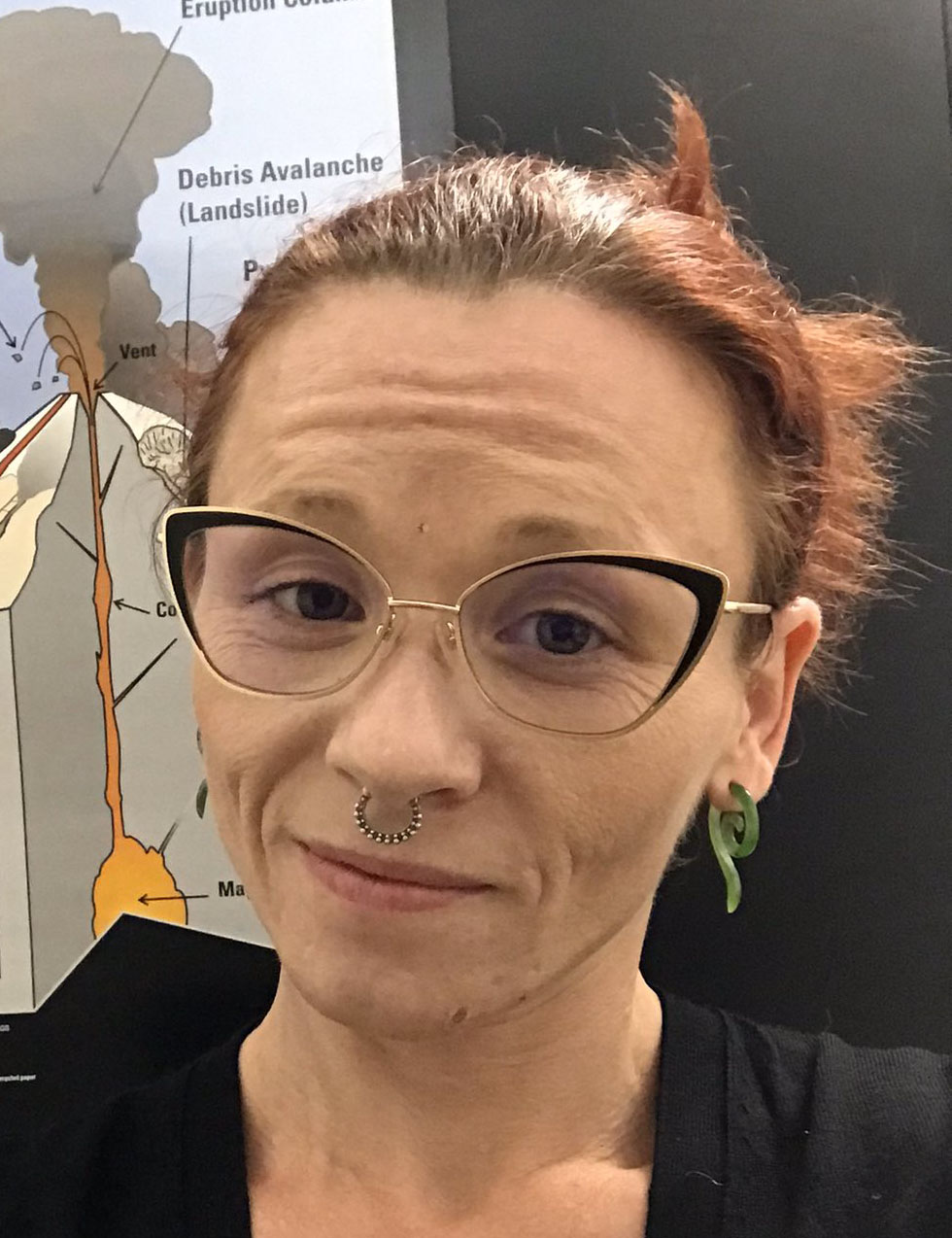
Dr. Melissa Scruggs
Assistant Professor of Geology
Farimount College of Liberal Arts and Sciences
A Midwest native, Dr. Melissa Scruggs earned her B.S. in Geology at the University of Missouri–Kansas City. She found volcanoes irresistible and moved to the West Coast to pursue a graduate degree in volcanology. She received her M.S. in 2014 from Fresno State where her thesis focused on understanding eruption triggering mechanisms at Cascade volcanoes. Dr. Scruggs received her Ph.D. in 2022 from UC Santa Barbara, aiding in construction of the Magma Chamber Simulator and using it to better understand how magmas are stored beneath active volcanoes. Dr. Scruggs’ current research aims to learn more about the plumbing systems of several volcanoes, including Mauna Loa (Hawai’i) and Newberry Volcano (Oregon).
Project Abstract
The 1300-year-old Big Obsidian Flow (BOF) is the youngest lava flow in Oregon, situated inside the active Newberry caldera. Although the United States ranks Newberry as its 13th most hazardous volcano, relatively little is known about how or where magma is stored beneath Newberry. Recent geophysical surveys revealed a magma body northeast of the caldera located ~1–2 km beneath the surface, but no one has yet used erupted lavas or their minerals to estimate magma storage depths. Mafic enclaves preserve evidence of magma mixing, a common eruption-triggering process. If mixing is incomplete at the time of eruption, erupted lavas can preserve enclaves. These enclaves vary in the degree of mixing and may lose their original mineral or melt compositions, making the least-mixed enclaves the most useful for identifying deeper magma storage conditions—information that most erupted lavas fail to retain. This initial phase of a larger study will map the spatial distribution of mafic enclaves present near the BOF vent to determine what percentage of them can help reconstruct recent magma storage conditions at Newberry Volcano. The broader project, which involves several undergraduate and graduate students, will build on these results.
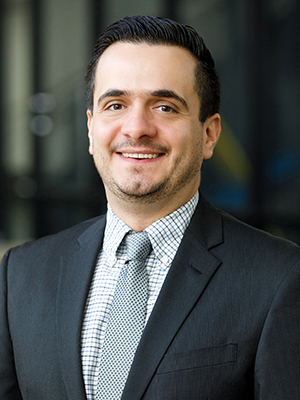
Dr. Davi Soares
Assistant Professor of Electrical and Computer Engineering
College of Engineering
Dr. Davi Soares is an assistant professor in the Electrical and Computer Engineering department at Wichita State University. He holds a PhD from Kansas State University and a Master of Science in Electrical Engineering from University of Campinas (Unicamp), Brazil. He previously worked as Cell Modeling Engineer for Freudenberg Battery Power Systems, where he developed equivalent circuit and physics-based models and conducted experiments to validate models and assess safety and thermal properties of lithium-ion cells. His research focuses on the development, characterization, and modeling of two-dimensional materials as electrodes for batteries and supercapacitors. Davi is the author and co-author of sixteen journal papers, one book chapter, and has presented his research in several conferences.
Project Abstract
Energy storage devices are critical to our daily lives, supporting multi-billion industries. Emerging energy storage technologies demand materials that offer not only higher energy densities but also lower costs, non-toxic and scalable production. Supercapacitors are a fast-charging energy storage solution, ideal for applications such as public transportation, where buses can be charged in seconds while passengers embark and disembark. However, lithium-based storage technologies are known for the high raw material costs and limited availability. Potassium, an abundant material, shares similar properties with lithium. This project will investigate potassium-ion supercapacitors (PiS) – a promising but underexplored technology in organic solvent electrolytes to increase their energy density. The goal of this research is to develop a high-performance and low cost PiS electrodes using a facile, non-toxic, and scalable synthesis route. An undergraduate student currently conducting research in our lab will work on this project, assisting to launch a new research direction in the Energy Systems lab at WSU.

